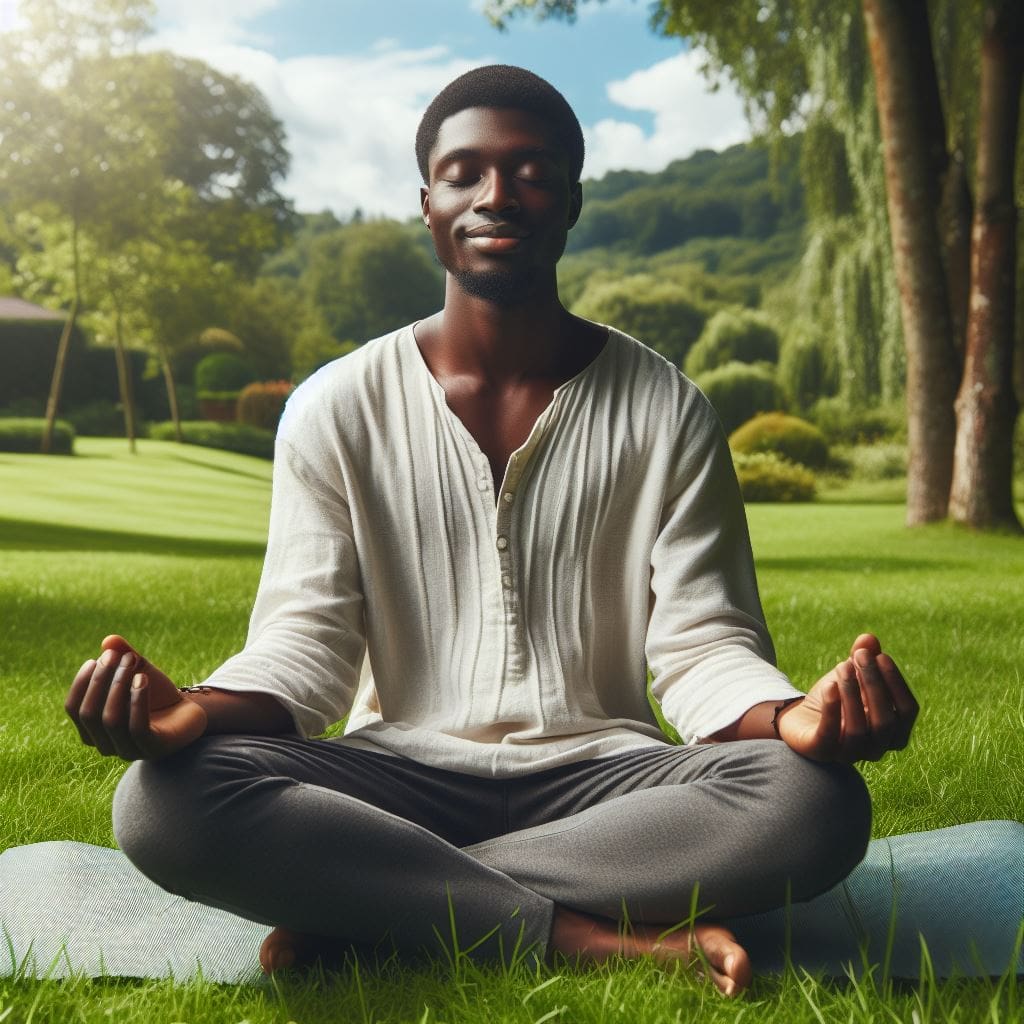
Mindfulness can help us find peace amidst the hustle and bustle of modern life. It allows us to focus on the present moment and ignore distractions.
This practice is useful for people who feel overwhelmed by all the information and stimuli we get on a daily basis.
This mindful practise can help us feel calm and clear-headed enough to focus on the present moment, rather than worrying about the past or future.
It can also help to reduce stress and anxiety, allowing us to cultivate a calm and centred mind to focus on the task at hand and be productive, as well as make better decisions.
In this article, we’ll explore the art of mindfulness and how you can incorporate it into your daily life.
Understanding Mindfulness
What is Mindfulness?
Mindfulness is the practice of being present in the moment and paying attention to your thoughts, feelings, and surroundings without judgment.
It’s a form of meditation that involves directing your attention to the present moment, rather than dwelling on past or future events.
It is important to know that this practice has its roots in ancient contemplative traditions, particularly within Buddhism. However, it has now evolved to transcend cultural boundaries, finding a place in mainstream consciousness and Western psychology
Appreciating its historical origins allows us to understand the depth of this practice and its relevance in our contemporary lives.
Key Concepts
Mindfulness is founded on principles such as non-judgmental awareness, acceptance, and the cultivation of a present-moment focus.
These key concepts are fundamental to the philosophy of this natural practise and encourage individuals to develop a deeper connection with themselves and the world around them.
By exploring these core concepts, one can lay the groundwork for a more conscious and intentional way of living.
Benefits of Mindfulness

Mental Health
Mindfulness has received recognition for its profound impact on mental health. Studies suggest that it can alleviate stress, manage anxiety, and even reduce symptoms of depression.
By fostering non-reactive awareness, individuals can navigate the complexities of their minds with greater ease, leading to improved mental well-being.
Emotional Well-being
Mindfulness contributes to emotional intelligence by enhancing self-awareness and regulation. Through this practise, individuals can develop a healthier relationship with their emotions, fostering resilience and a more balanced emotional state.
Physical Health
Mindfulness is not limited to the mind but extends its benefits to physical health. Improved sleep quality, strengthened immune function, and pain management are among the surprising connections between mindfulness and overall well-being.
The mind-body connection becomes evident as mindfulness practices positively influence various health conditions.
There are numerous benefits to practising mindfulness. Research has shown that mindfulness can:
Reduce stress and anxiety.
Improve focus and concentration.
Increase emotional regulation and resilience.
Improve sleep quality.
Boost immune function.
Enhance relationships and communication.
Increase feelings of happiness and well-being.
Similarly, in the professional world, mindfulness is a powerful tool that can enhance focus, creativity, and job satisfaction.
Creating a more productive and harmonious environment in the workplace will provide a means to integrate mindfulness into the workplace.
How to Practice Mindfulness
Mindfulness can be practised in a variety of ways, from formal meditation to simple daily activities like walking or eating, and the key is to find what works best for you.
Here are some tips for incorporating mindfulness into your daily life:
1. Start with simple activities.
You don’t need to set aside hours of your day to practice mindfulness. Start with simple activities like taking a walk, eating a meal, or doing the dishes.
Focus on the sensations of the present moment, such as the feeling of the sun on your skin or the taste and texture of your food.
2. Use guided meditations.
Commencing one’s mindfulness practice, guided meditations can serve as a beneficial method. Various applications and websites are readily available, providing costless guided meditations.
Alternatively, one may opt to collaborate with a mindfulness coach or therapist in order to cultivate an individualized practice.
3. Practice breathing exercises.
Focusing on your breath is a simple and effective way to cultivate mindfulness. Try taking a few deep breaths, noticing the sensation of the air moving in and out of your body.
4. Practice mindfulness in daily life.
Mindfulness doesn’t have to be limited to formal meditation. You can practice mindfulness in your daily life by paying attention to your surroundings as you walk or drive, or by being fully present in conversations with others.
5. Be patient and kind to yourself.
Mindfulness is a practice, and it takes time to develop. Be patient and kind to yourself as you explore different techniques and find what works best for you.
Incorporating Mindfulness into Your Daily Routine
It is accessible to both beginners and experienced practitioners. This guide offers practical guidance on how to incorporate meditation into daily life.
Here are some simple ways to incorporate mindfulness into your daily routine:
1. Take a few deep breaths before starting your day.
2. Set aside time each day for formal meditation, even if it’s just a few minutes.
3. Practice mindfulness while doing everyday activities like brushing your teeth or washing dishes.
4. Take a mindful walk in nature, paying attention to the sights, sounds, and sensations around you.
5. Use a mindfulness app to help you stay on track with your practice.
The Bottom Line
Mindfulness is a powerful tool for reducing stress, improving focus, and cultivating a calm and centred mind. By incorporating mindfulness into your daily routine, you can reap the benefits of this practice and experience greater happiness and well-being.
However, consistency is crucial to maintaining a mindfulness practice, and the guide discusses the importance of making it a sustainable, long-term endeavour.
It emphasizes the need for flexibility and adaptability, allowing individuals to integrate mindfulness into diverse lifestyles.
Whether you’re new to mindfulness or have been practising for years, there’s always room to deepen your practice and explore new techniques.
So start small, be patient, and enjoy the journey of cultivating a calm and centred mind through the art of mindfulness.



